5 Different Types of Water Heaters (with Pictures)
Last Updated on December 11, 2021
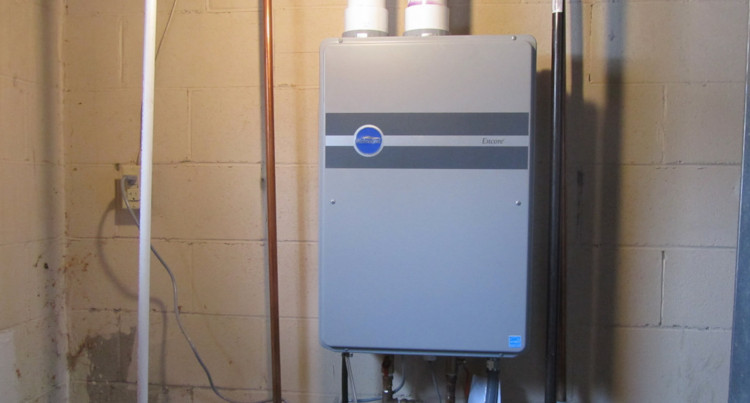
Image credit: John Eisenschenk, Flickr
When you turn on your faucet and enjoy a splash of warm water, you don’t often think of the heating mechanism responsible for bringing it to you. But behind all warm water (in the household anyway) there is a water heater.
Not only that, but there are actually a variety of water heaters out there. Different styles of the same product, each suited for a different type of user.
And, to add a little bit of pressure to the situation, these bad boys aren’t exactly cheap either. If you’re going to be buying one, you want to make sure that it’s the right product for you and your home.
For that reason, we’re going to take a look at the five different water heaters and try to identify which one might be right for you. Read on!
The 5 Different Types of Water Heaters:
1. Tank Water Heater
The tank water heater. That’s what you’re going to find in most households, probably somewhere off in a basement or utility closet. They are big, bulky, and filled with (as you might imagine) hot water.
This system is usually pretty straightforward. Most units include two simple valves. One for adjusting the temperature, and another for releasing pressure as needed.
There are plenty of benefits to going with this option. It’s low maintenance, relatively affordable, and easy to install.
However, there some cons as well. The biggest issue is that the amount of hot water you have access to will be severely limited by the size of your tank.
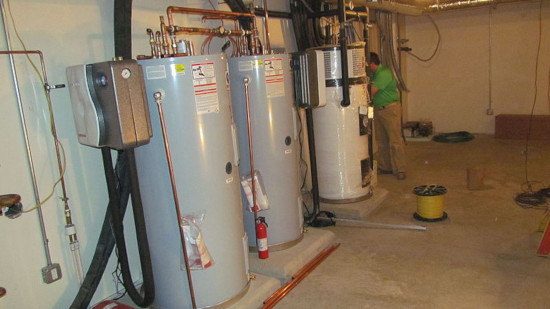
Image credit: National Institute of Standards and Technology, Wikimedia
2. On-Demand Water Heater
The on-demand water heater is an advent of relatively new technology. This system is prized for its ability to instantaneously heat water via a system of coils.
There is no tank with an on-demand system because the amount of hot water that you have access to is ostensibly limitless.
On-demand heaters also have the benefit of requiring virtually no maintenance. You can clean them once a year or so to ensure that calcified minerals don’t build up and clog the system, but otherwise, it’s maintenance-free.
However, there are a few caveats. For one thing, you need to make sure that the heater is the right size for your home and for your family. If you get something too small, it will be effectively useless when you need lots of hot water all at once.
These systems also tend to be substantially pricier than other conventional options, which means you’re really going to need to be willing to pay for the luxury of limitless hot water.
To make matters even more expensive, some homes may require an upgrade to their gas line before an on-demand heating system can be installed. Older homes may not be equipped to handle the energy needs that these systems require.
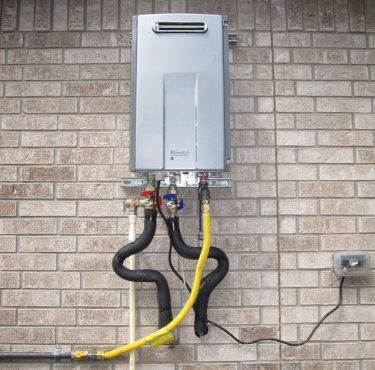
Image credit: Roger Mommaerts, Flickr
3. Pump Water Heater
The pump heater is unique because of the fact that it doesn’t actually create any heat at all. Instead, it essentially pulls heat from warm air within the ground, and then uses that to heat water stored in your tank.
As a result, these units are extremely energy efficient, which is good both for the environment, and for your long-term power bill.
However, there are a few issues that might make users think twice about this option.
For one thing, the pump heater is subject to variables that are outside of your control. If the ground that it’s pulling from is cool, the heater isn’t going to have very much to work with.
For this reason, these heaters usually don’t do very well in basements or other typically cool environments.
It’s also worth mentioning that pump heaters are generally very expensive to purchase, though this is offset by the savings they provide on your power bill.
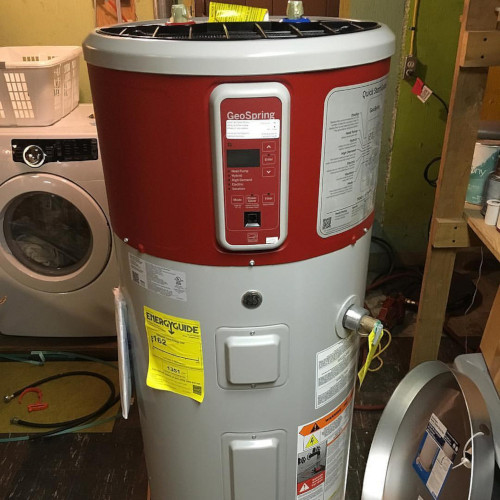
Image credit: Jeff Robbins, Flickr
4. Condensing Water Heater
If your home is heated primarily by natural gas, there’s no better option for addressing your hot water needs than the condensing water heater.
Why? When used in a household that is powered by natural gas, this system doesn’t require any energy at all.
The condensing water heater works by using runoff gas from other heating appliance (furnaces, etc.) to power up coils at the bottom of your water tank.
Basically, it repurposes energy that you’ve already used so that you can make your water heater work for free.
However, as with any water heater, it does have some cons to look out for. An obvious one is that if your home doesn’t use much natural gas, you won’t have a good experience with this system.
Condensing water systems also usually require a tank of 55 gallons or more, which makes them an unsuitable option for smaller homes.
Still, for the right family, this is going to be a tremendous money saving opportunity.
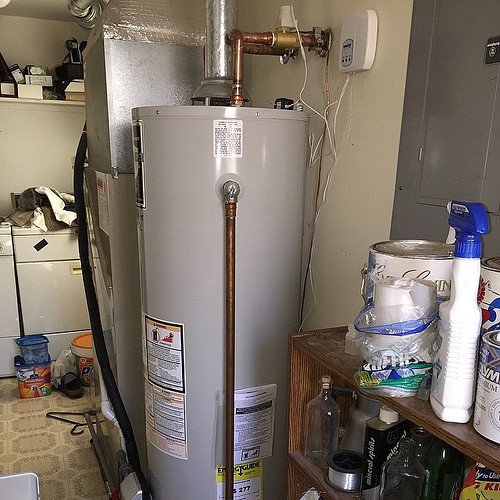
Image credit: Tony Alter, Flickr
5. Solar Powered Water Heaters
Last, but certainly not least, we have solar powered systems to consider. Solar powered water heaters draw their energy from panels mounted outside of your home (usually on the roof).
Solar is, naturally, about as efficient a power source as you can get. On an ideal, sunny day, you will save lots of money with solar powered appliances, but there are plenty of downsides that you’ll also need to be conscious of.
For one thing, solar panels are fairly expensive as a startup cost. If you commit to them, you will recoup your investment eventually through the savings that you get on your power bill. However, the sticker price itself may be inaccessible for some people.
There’s also the matter of what happens when the sun isn’t out. On cloudy days you’ll need a backup plan for your solar-powered water heater.
That means that gas lines wind up factoring back into the equation.
Solar is great for the right user, but they do require a level of personal commitment from the homeowner to work out. Still, if you are willing to front the sticker cost, and implement backup plans as needed, this will be a great way for you to heat your home.
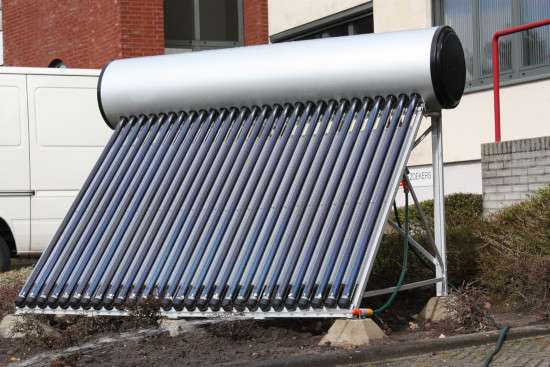
Image credit: gmourits, Flickr
So, which is right for you?
Every buyer is going to be looking for something a little bit different. Want something tried, true, and affordable? You can’t go wrong with the classic tank water heater.
Or maybe you want to stay modern and enjoy unlimited hot water in the process. On-demand heaters will be great for homeowners who don’t mind spending a little more to get the latest and greatest.
And of course, the last three options that we examined will all be great at keeping your energy bill low.
Pump systems, for people who have a nice warm place to store their heater. Condensing heaters, for homeowners who use lots of natural gas. And solar heaters, for people who either already use panels, or who are committed to taking the leap.
There really is something out there for anyone. Now that you know your options you should have no problem picking out the perfect water heater for you and your family.
You can also see our comparison of some of the most popular tankless water heaters here.
